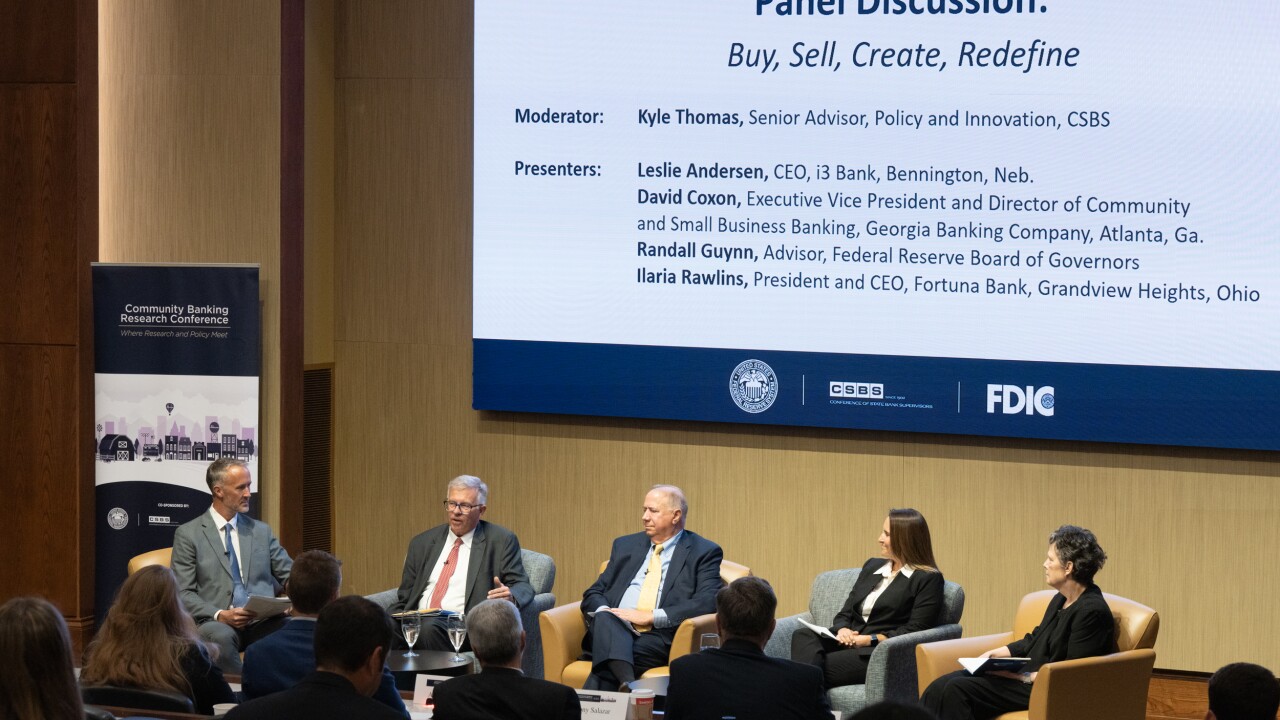
I've seen firsthand how policy decisions made in Washington ripple through America's neighborhoods, determining
Lack of fair access to credit and opportunity has afflicted underserved communities for generations. From redlining to predatory lending, the same neighborhoods have been left behind. Today,
Stablecoin issuers are seeking to replicate the functions of traditional banks without following the rules that keep our financial system stable and accountable. Banks and credit unions must maintain capital requirements to weather economic storms. They provide FDIC insurance so families don't lose everything if an institution fails. And, critically, through the Community Reinvestment Act, they're required to invest in the communities they serve. However, none of these protections apply to the cryptocurrency companies that issue stablecoins.
While the GENIUS Act prohibits stablecoin issuers from offering interest or yield, cryptocurrency companies have found a workaround by offering rewards structured as interest-bearing accounts. This is a fundamental reshaping of our financial system, and the communities I serve will pay the price.
Consider what happens when a major crypto firm collapses. We've seen this movie before with FTX and others. Millions of families could lose access to their money overnight. There's no deposit insurance, no capital cushion and no regulator with the tools to unwind a collapse. The ripple effects would devastate Main Street while Wall Street moves on.
The Federal Reserve played a behind-the-scenes role in facilitating the sale of PacWest Bancorp, providing an enticement to private-equity interests to make a deal happen, according to agency records and recent comments by a prominent banking lawyer.
Regulators warn that $6.6 trillion could migrate from insured bank deposits into stablecoins, draining away the lifeblood of community lending. When capital leaves traditional banking, underserved communities suffer the most. That means fewer mortgages for first-time homebuyers and minority-owned businesses, as well as higher borrowing costs in communities that can least afford them.
Fortunately, Congress now has a chance to prevent another financial crisis before it happens. Lawmakers must simply close the loophole, banning cryptocurrency companies from paying rewards and restoring the intent of the GENIUS Act. By taking action, Congress would restore a simple principle: If you act like a bank, you have to play by the same rules as a bank. That means meeting capital standards, protecting deposits and contributing to the communities that make your business possible.
Financial innovation can be a force for good. And, given the lack of access that traditional financial institutions have afforded many consumers, innovation can sometimes be seen as the only hope. In some cases, innovation has expanded access to credit, lowered costs and brought more Americans into the financial system. But it must be built on a foundation of safety and accountability. Leaving the stablecoin loophole open will destabilize, not democratize, finance.
Congress must act now. Every day this loophole remains open, more capital flows away from communities that desperately need it. Every day, the systemic risk grows. Every day, we move closer to a crisis that will hit hardest in neighborhoods that have already been left behind.
If a crisis arises, the most vulnerable communities will once again pay the price.





